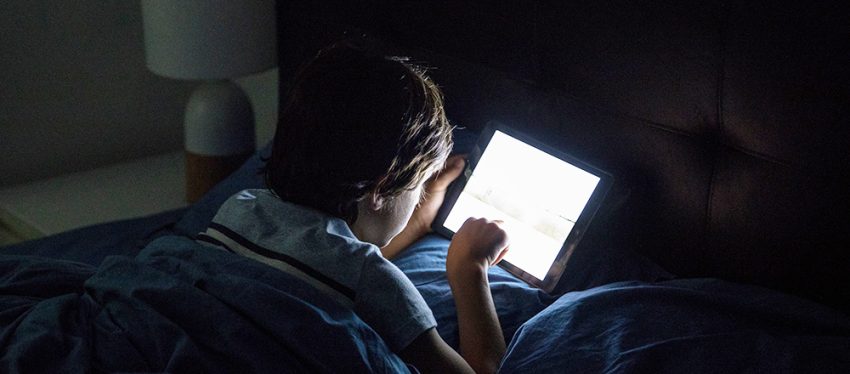It is becoming increasingly common to see young children glued to tablets or smartphones, raising concerns among parents about the potential effects on their development. As research in this field advances, it becomes clearer that the use of interactive screens negatively impacts children’s sleep, especially those under the age of three.
Researchers from the University of London found a significant correlation between the use of interactive screens by children aged six months to three years and a reduction in their sleeping time. For every hour spent daily on a tablet or smartphone, children under three reduced their nighttime sleep by 26 minutes. This resulted in a total reduction of 15 minutes in daily sleep time, as screen time also increased daytime naps by 10 minutes. The researchers speculate that this compensation during the day may be the body’s way of trying to make up for lost sleep at night.
Furthermore, children took longer to fall asleep as their use of these technologies increased. The study, published in Scientific Reports, also found that television use, another common babysitting tool for parents, only reduced daytime nap time and had no effect on nighttime sleep.
“Given the greater neuronal plasticity in early childhood, sleep is likely to have the greatest impact on brain development and cognition during this critical period,” explained the scientists.
Evidence had previously shown similar effects in children aged six to 18 years. A study published in JAMA Pediatrics revealed that children who use portable screen devices before bedtime are more than twice as likely to have insufficient sleep compared to those without access. This also affects daytime sleepiness and sleep quality.
While the mechanisms behind the reduction in sleep time due to screen use are not yet fully understood, explanations include the blue light emitted by screens disrupting natural sleep rhythms and the stimulating nature of screen activities preventing children from winding down before bed.
“We cannot infer causality from this study, as it simply describes what families are doing,” explained Irati Sáez de Urabain, a researcher involved in the study. “To infer causality, we would need to control screen use for a group of families and check if sleep patterns indeed change, an intervention that requires careful consideration of all the ethical issues involved.”
However, not all screen time is detrimental, as long as the content is educational and parents actively engage with their children during screen time. Simply parking children in front of screens without interaction is discouraged. “The next step is to investigate the long-term effects of touchscreen use in childhood and study the theories about brain and cognitive mechanisms that may be affected by these effects,” concluded Smith.


